Not Hiring: Old Jobs That Were Made Redundant
Once upon a time, when kids still played on real grass rather than in animated worlds and when people spent more time facing other people rather than computer screens, people fended for themselves all on their own against all the challenges every day presented. They carved their own ice, computed their own numbers, and even had human alarm clocks. As odd as it may seem to us now who are enjoying the luxuries of the modern world, many of these jobs were solid options for a good paycheck. Sadly, many of these have been pushed into extinction by technology, while some were outlawed because of how dangerous they were. Today, we can only hear tales of these jobs that seem to come from a world that isn’t the same as ours.
Herb Strewer
The 1600s may have been popular because of its fair share of medieval castles and tales; however, one thing that movies deliberately miss when portraying the era was the horrifying lack of hygiene. There were toilets, yes, but people, especially the nobility, still preferred their portable chamber pots, which maids simply emptied onto the streets.
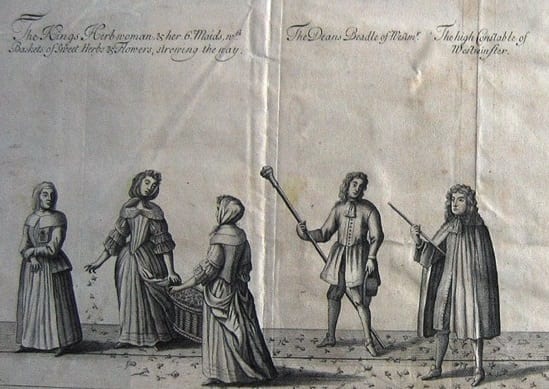
To combat the grossness and the smell, royal houses hired someone whose main job was to spread herbs and flowers all over the grounds called an herb strewer. He/she would toss around plants like roses, basil, lavender, and chamomile, which probably did little to mask all that nastiness. So while you would be walking on a literal bed of flowers and plants, it would have smelled very far from one.
Knocker Upper
For some reason, people in days gone by seemed to be natural very early risers. Even without alarm clocks buzzing them out from the land of dreams, they rose before the sun and was out just as it was rising over their cities.
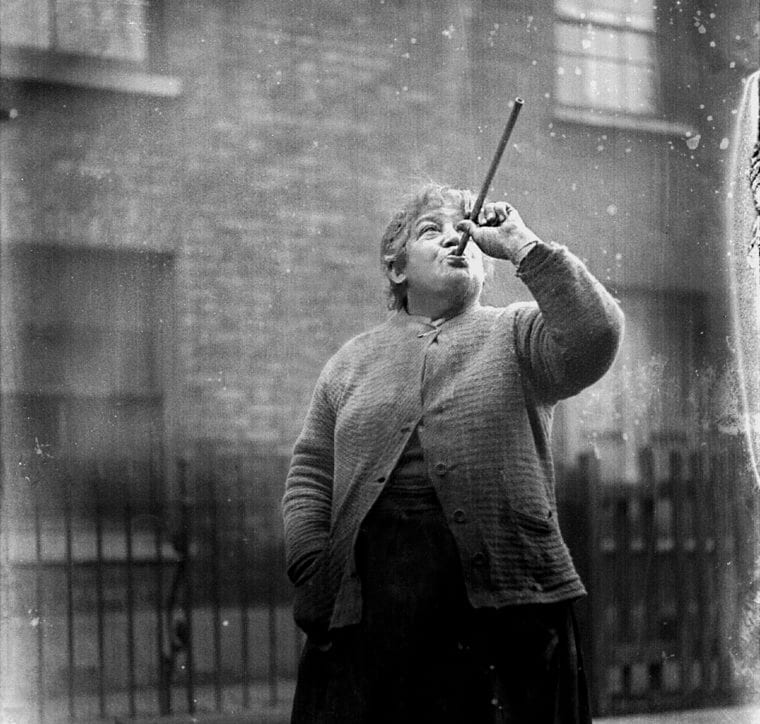
These people had allies, though. Early on in the 19th century, before alarm clocks were invented, people hired knocker ups to wake them. These people would either shoot peas at their windows or keep tapping them with long bamboo sticks to wake them.
Leech Collectors
In the days when the medicinal trend was to bleed out the sickness, doctors used leeches to suck out whatever they thought was making the patient sick. This practice was at its height in the 18th and 19th centuries.
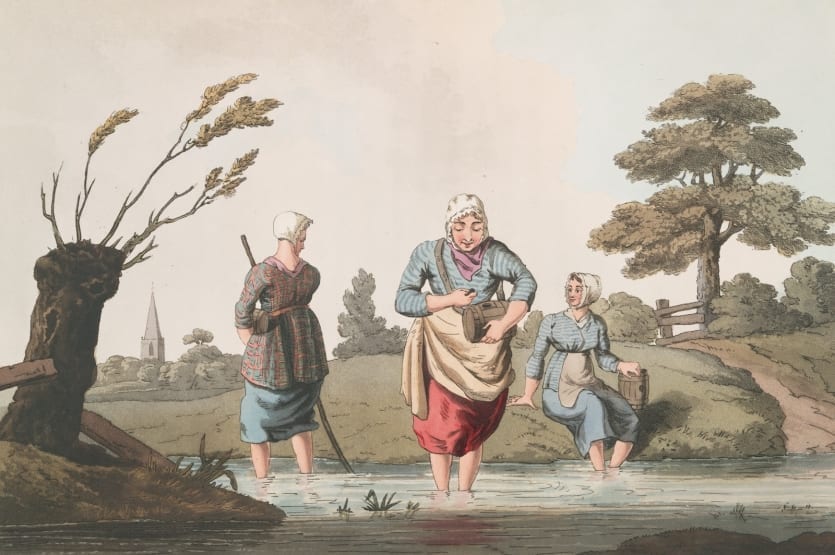
People took advantage of this and created jobs out of collecting leeches for this purpose. They’d often take old horses to swampy areas to attract the leeches, and if they didn’t have horses, they would use their own legs.
Lector
Factory workers couldn’t do anything about the mindlessly repetitive tasks they had to do to earn money. Still, someone saved them from the boredom of it all; a lector was someone who would read the news and literature as they worked. Think of them as a human radio.
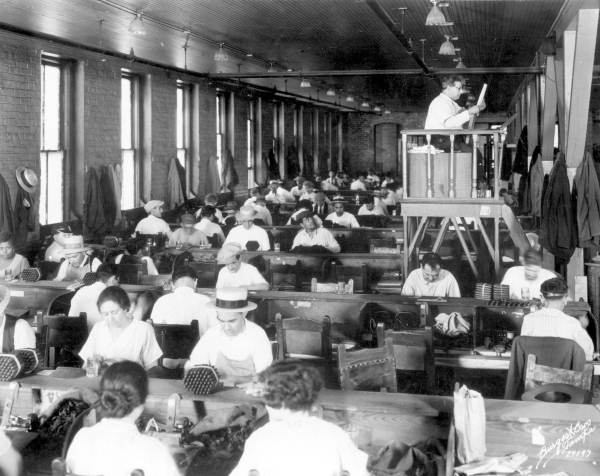
Sometimes, factory workers would even pitch in part of their salaries to fund their lectors. They loved them so much that there were even instances when the workers would go on strike when their company tried to remove their lectors.
Groom of the Stool
King’s poop too. The only difference that those kings of the olden times have with us common folk today is that instead of phones or magazines, they had an actual person to while away the time with them while doing their business, known as the Groom of the Stool.

Apparently, kings loved confiding in their bathroom buddies so much that it’s no wonder that the position became one of the most powerful and respected in the king’s inner circle. After all, how much deeper can you get in that inner circle after you’ve seen the king, a person who is held at the highest regards, sitting butt naked and ejecting something that smells extremely unholy? We’re not too sure if it’s worth it, though. Just look at this former groom of the stool’s face.
Log Drivers
Before vehicles were used to help us carry all the heavy things we need, people had to lug them around all on their own. Instead of carrying them on their shoulders or dragging them on the ground, though, people had to innovate to make their jobs more efficient like the log drivers.
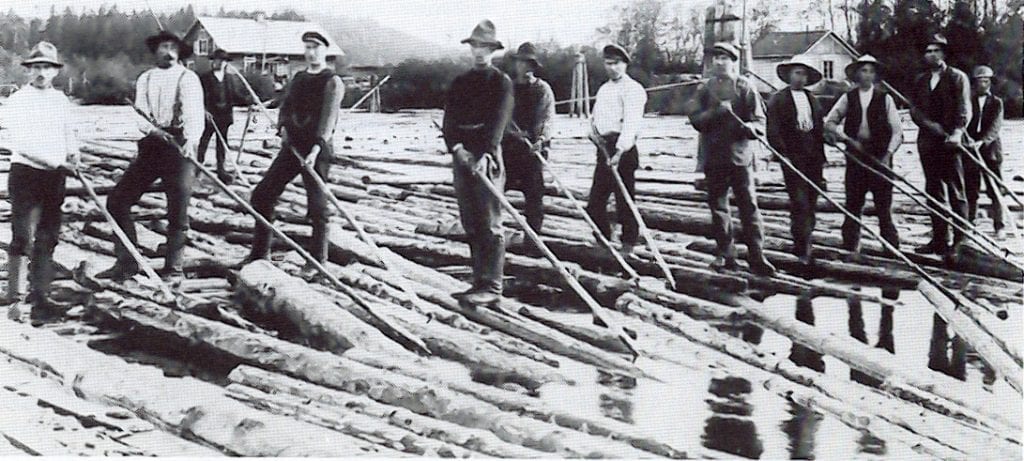
These people were in charge of moving heavy logs from where they cut them down in the forest to the sawmills through the river. Instead of just letting them free float down the river, they had to ride them and guide them to avoid having them pile up on each other.
Link Boys
Lamps have saved countless people from falling to their deaths, slipping and breaking their hips, and ruining their fancy footwear on random poop scattered along the streets. But there was a time when you had to carry your own torch if you wanted to wander outside in the dark. Either that or you hired someone to do it for you.
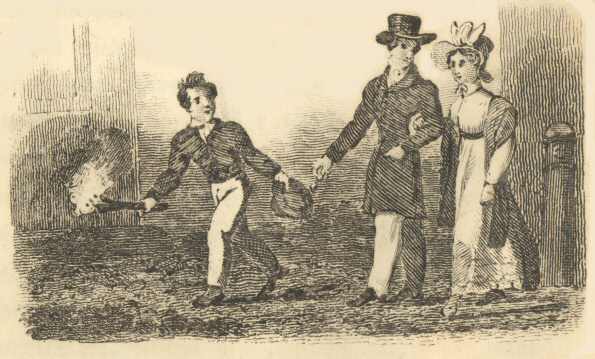
If you had some extra money to spare and if you were above holding your own torch in London in the middle ages, you hired a link boy. Those who weren’t in private employ would often offer their services to pedestrians for a small fee. When people found a way to create lamp posts, these kids lost a good source of extra cash.
Toad Doctors
Thank heavens for the medicine we have today because as much as we admire the efforts of the early doctors, there are just some cures that are too absurd to ride with. For instance, if you got sick with scrofula in the 18th century, doctors would tell you to put a toad in a bag and wear it around your neck.

And no, it wasn’t a dead toad that you had to put in the bag. It was a live one, still breathing, squirming, and hopping. It was either that or the leg of one. If the sickness didn’t get you, the smell of the dying frog would probably do the job just as well.
Gong Farmer
Believe it or not, poop made money in the early centuries. There were those who cleaned up a royal’s poop, there were those that accompanied kings while they pooped, and then there were those who cleaned up the places where all the poop was dumped.
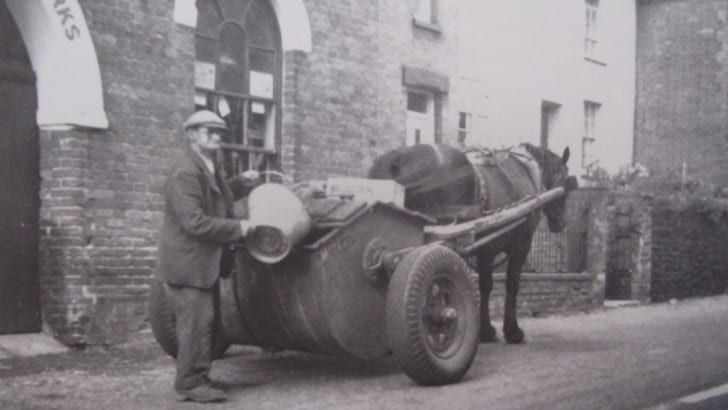
The last one of those three was called gong farmers. While their job title seemed pretty decent, the actual job itself was one of the worst poop-related ones. These people had to dig out human poop from cesspits and privies. Thankfully, toilets and the plumbing system was later invented, putting these guys out of business.
Breaker Boy
The further back in time you go, the younger the workers were. Before labor laws started cracking down on these practices, kids as young as 8 years old were already being put to work and not under the best of conditions.
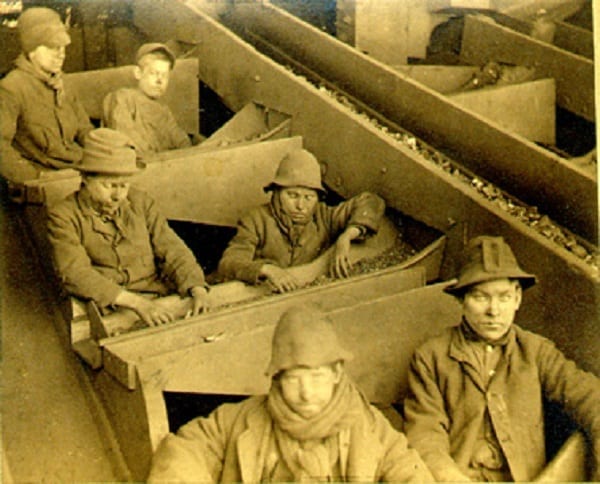
One such job that these minors took was being a breaker boy. They helped separate impurities from coal by hand in mines. Although there was public outcry letting the kids work in such dangerous conditions, it was only in the early 1920s when companies started taking child labor laws more seriously, and the job was left to coal separation technology.
Billy Boys
Although the name might not sound sophisticated, we can assure you that the job itself was rather specialized. Billy Boys were the expert tea makers of the 1920s who had memorized and mastered the art of tea making by heart.
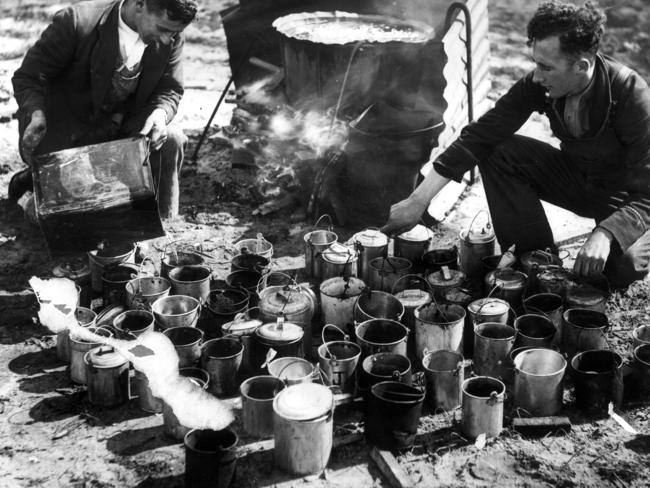
Much like becoming a chef, this job needed a lot of dedication. You’d really have to love tea to become a Billy Boy. Young men who’d want to become one would have to go through apprenticeships to earn the title. In today’s times, it’s like becoming a barista.
Brewess
While you might easily mistake beer as a man’s creation, it was actually women who created one of the world’s most popular drinks. Ancient civilizations dating back to the Egyptians credit women for it, and in the 1700s, female brewers handled the beer.
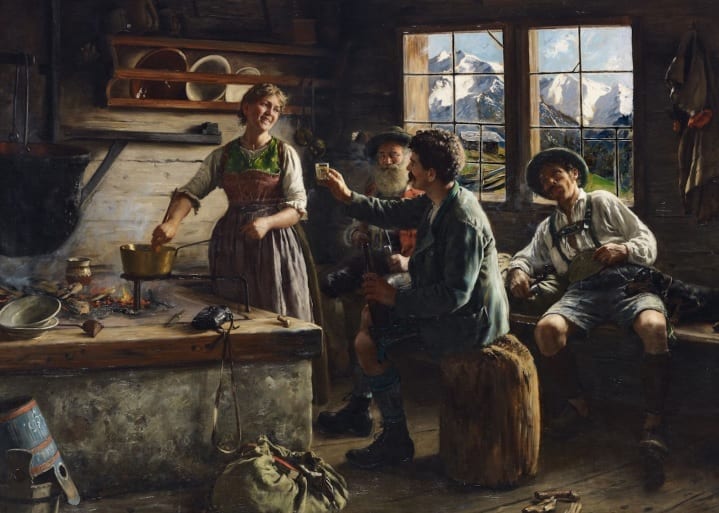
These women were even licensed to make beer, and some laws dictated that brewing tools should only be the sole property of women. Unfortunately, as the market grew, and with it, the demand for beer, companies started taking over to produce it on a bigger scale. Men gradually started claiming taverns, bars, and liquor as their own, and they also started replacing brewesses. Since then, brewers tended to be males.
Dispatch Rider
Everyday communication is already a tricky thing to navigate but just imagine when it’s wartime and lives depend on every single message you sent out. What a load of pressure, right? But that’s how it is, and in wartime, you had to fight for every single message you send out.
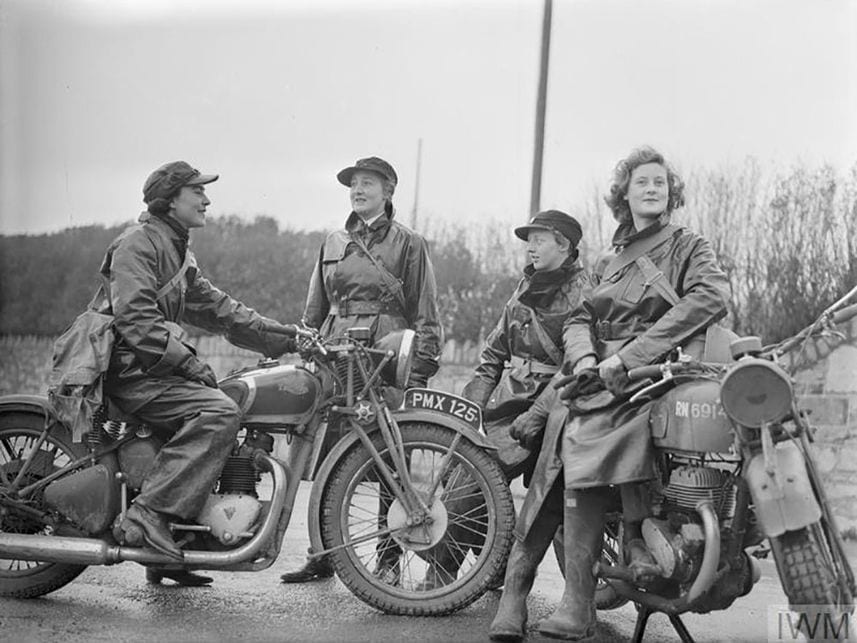
Back in World War I and II, people quickly learned that the manual human way was still the best way to go. Military personnel relied on people called dispatch riders, motorcyclists who zipped between camps to deliver urgent messages rather than unstable and vulnerable radio transmissions. And unlike radio transmissions, people would fight to keep that message away from the enemy as long as you got a loyal rider, of course.
Clock Keeper
“The Clock Keeper” sounds like a great movie title, doesn’t it? In the olden days, people who held that job title was often highly regarded because they literally moved the hands of time. And as we know, much of our lives move and revolve around time.
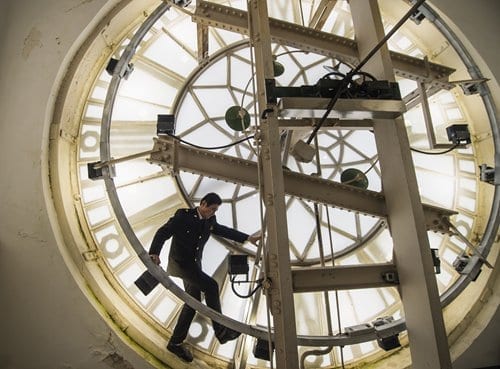
In its earliest form, clock keepers worked around the clock ringing a centralized bell throughout the day to indicate what time it is. When the mechanical clock was born, the job evolved to winding clocks day in day out to make sure they were keeping accurate times. Holding this job though, meant having a great responsibility as well as a great power. Just imagine the ensuing chaos just from one little “mistake.”
Tosher
There were a lot of jobs to be found underground back in the days. There were those who mined gold under the mountains, and there were those who hunted for gold coins and other valuable items in sewers called toshers.
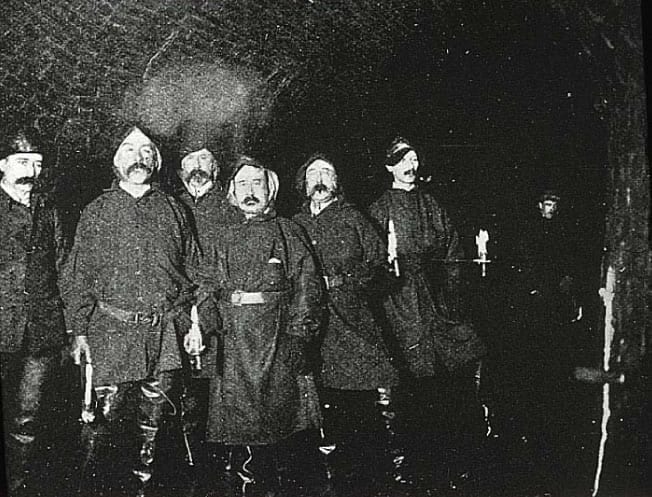
In the Victorian era, toshers would break into the sewers and scavenge for coins, fallen items, or anything that was of value. Surprisingly, they earned a pretty decent living out of this that put them at the same level as the working class. However, by 1840, sewer diving became illegal, and people were even offered rewards to catch toshers, which immediately killed the job.
Resurrectionists
Aside from poop, another human aspect that gave birth to a wide variety of odd jobs was medicine and not just in the means of curing disease. For instance, Resurrectionists worked to get dead bodies for examination for med schools in exchange for a salary. Unfortunately, it wasn’t the most legal or ethical of professions.
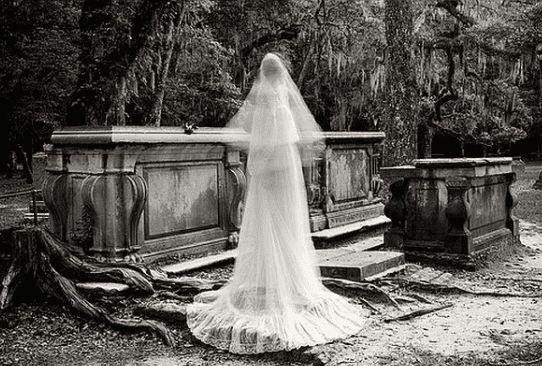
In Britain, where the practice was popular in the 18th and 19th centuries, society called them by a more apt name: body snatchers. They were essentially thieves of the dead. When the British government had finally had enough of bodies being dug up left and right in their cemeteries, they let their doctors have access to the dead bodies of the dead poor instead. It is just as unsavory, but it did get rid of a pretty gruesome profession.
Vivandiere
Although vivandieres were no Mulans, they were just as courageous and honorable as the Disney heroine. These were women who served alongside the French army in the Napoleonic wars and the French Revolution. They even appeared in the history of the American Civil War.

Vivandieres were essentially mobile maids and medics who followed troops, tended to the wounded, cooked, sewed, and carried the soldier’s canteens. Before World War I, the French ministry banned the job for good but until today, these women are still remembered with great respect.
Lungs
When you see the word lungs, the first thing you’d immediately think of is the organs that allow you to breathe and not a profession. But from the 14th to 16th centuries, this was actually a paid job title.
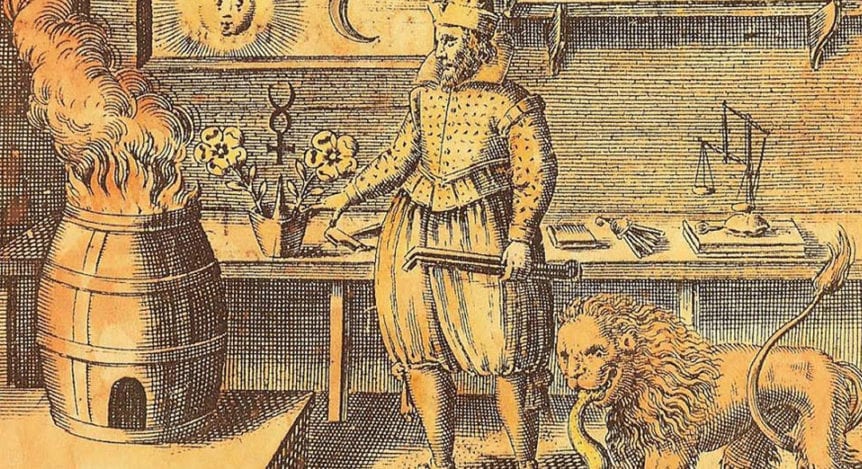
These human “lungs” fanned the fire and kept them going in alchemist shops when their products were still in high demand. Sadly, with all the toxic materials in the shops, the workers developed blackened lungs. The worst part is that it took a couple of centuries before people discovered this and finally put the job to rest.
Castrato
Yes, as the name implies, this job involves castration. And usually, it was prepubescent boys who performed in the theatre who would undergo the process to produce a more powerful adult voice that can reach higher notes.
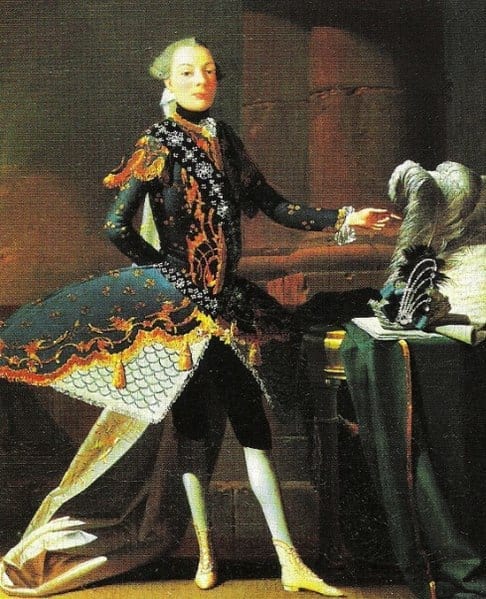
It’s horrifying to say the least, but the Italian opera of the 16th century loved the castrati. They were all the rage, and they reached a celebrity-like status. Fortunately, people realized just how inhumane this was, and people went back to doing good old vocal training to reach those opera notes.
Mudlarks
The sad truth is that the statement there is treasure in another man’s garbage is extremely true. Today, we have garbage scavengers who look for scraps to trade for money or food. In the olden days, they had the mudlarks.
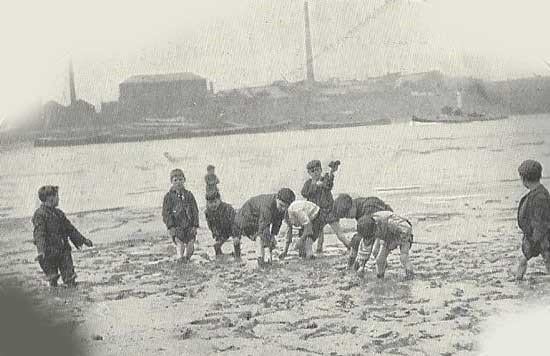
Mudlarks were often people from extreme poverty. Instead of dumpsites, they’d waddle through river mud, looking for any valuable item that might have washed up there to resell to the public. By the early 1900s, the job was seen as unlawful and wasn’t seen as an acceptable profession, and it soon died out.
Hush Shopkeeper
If you wanted to be a hush shopkeeper before, you’d have to be pretty good at well, keeping things hush -hush. That’s pretty much the job but more specifically, these people kept the secret of selling of alcohol hush- hush.
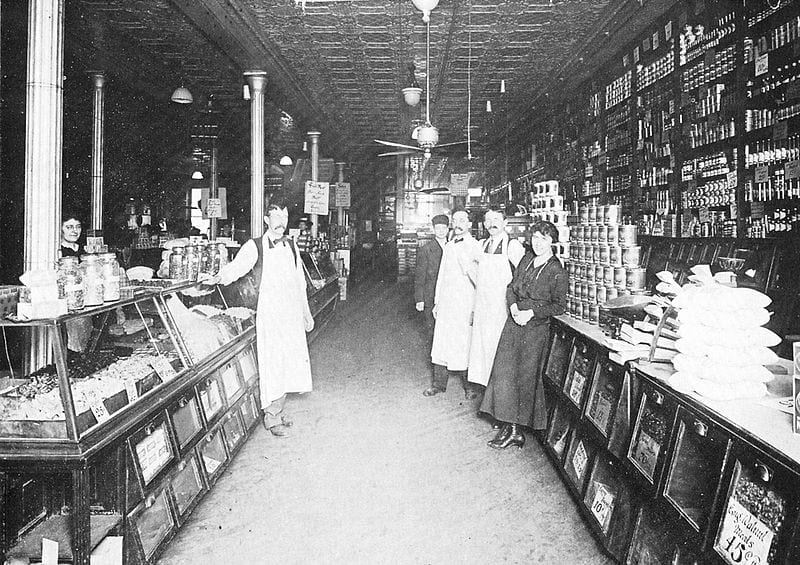
During Prohibition in the US, people were banned from buying and drinking alcohol. Still, people just had to get their fill. So hush shopkeepers sold bottles of liquor under the table to people they trusted wouldn’t rat them out. Once the ban was lifted, they turned back into ordinary shopkeepers again.
Food Taster
You’ve probably heard of people tasting royals’ food before it was served to them, not to make sure it tasted good but to make sure it wasn’t poisoned. Although they’d be tasting the best dishes in the land, it might also kill them. It was simply your bad luck if you ended up with a poisoned dish.
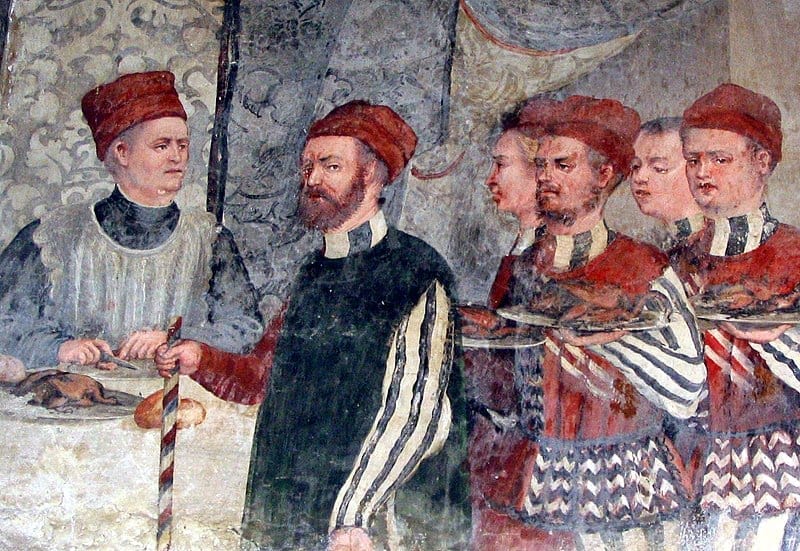
The job existed everywhere in the world and dated back to ancient Egypt and Rome. And it was not only royals who employed them. Even high ranking German officials of World War II had their own personal food tasters. As people found more ways to keep royal food-safe, though, the job eventually died out.
Cigarette Girl
In the early 1920s, smoking cigarettes was still very cool and very much a part of American culture. And the job of cigarette girls became very popular in bars and clubs. These ladies wore pillbox hats and walked around with a tray of cigarettes hanging from their necks, offering a wide variety of cigarettes to the patrons.
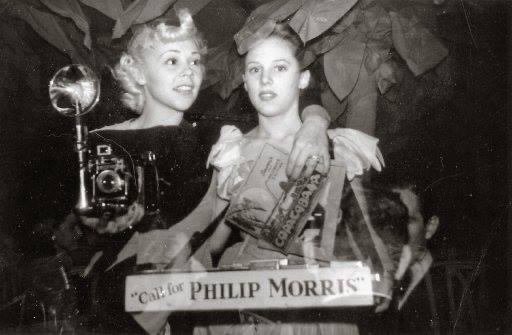
By the 1950s, cigarette girls were also selling cigarettes in games, and they pretty much became a cultural icon. As the years progressed, though, so did the perception towards smoking, and as attitudes turned away from it, the job slowly went up in smoke.
Bematist
We usually reserve measuring distance by feet, meters, kilometers, or whatever unit of measurement you’re using and not by steps. Just imagine how long you’d have to walk to measure out 10 kilometers in steps. Many people would immediately back away from that, but the Greeks were another kind of people.
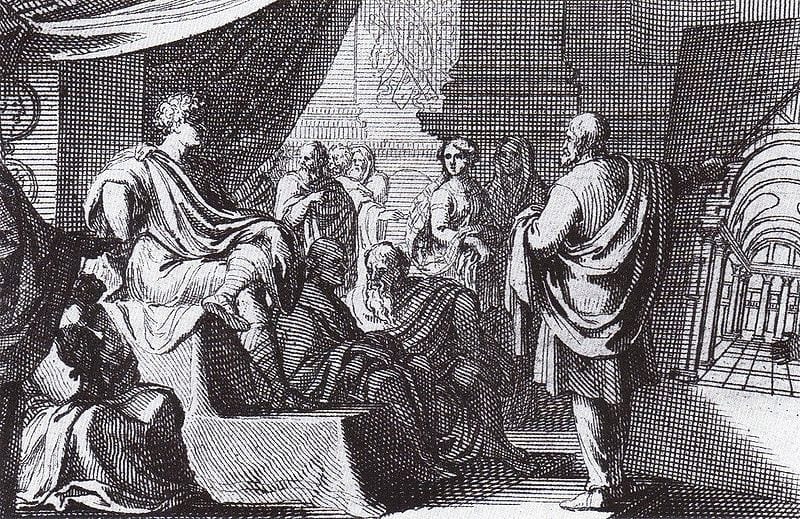
Before the Greeks had any measuring tools, they had Bematists, people trained to calculate distances by measuring their steps. Alexander the Great even had a couple with him who measured the distances of his travels during his campaign in Asia. Surprisingly though, their measurements had a high degree of accuracy that historians thought they had some sort of device with them, although there has never been any proof of it.
Ratteners
Rats were as much a pain in the butt before as they are now. But it was actually worse in Victorian times when these rodents carried disease and people had little sense of hygiene to help fight it off. These creatures, however, provided another job opportunity.
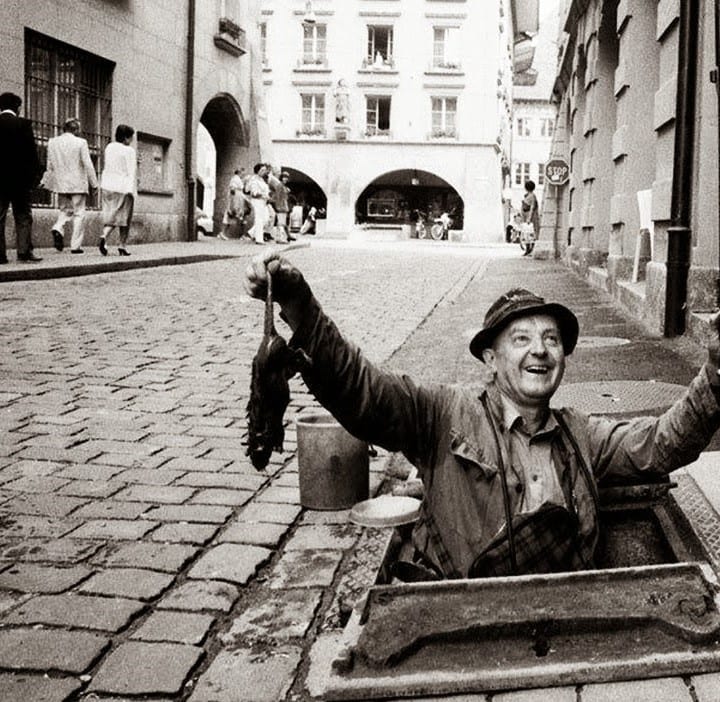
Surprisingly though, before the black plague, ratteners caught rats for entertainment purposes. They made a show out of it in pubs. When disease broke out, though, the show became a lot more of a necessary and even dangerous occupation.
Milkman
Milkmen are such iconic people. They’re in cartoons, movies, books, and people still fondly remember all the jokes about them. If you lived in the 50s and 60s, you’d get your daily fill of milk in glass bottles from these milkmen.
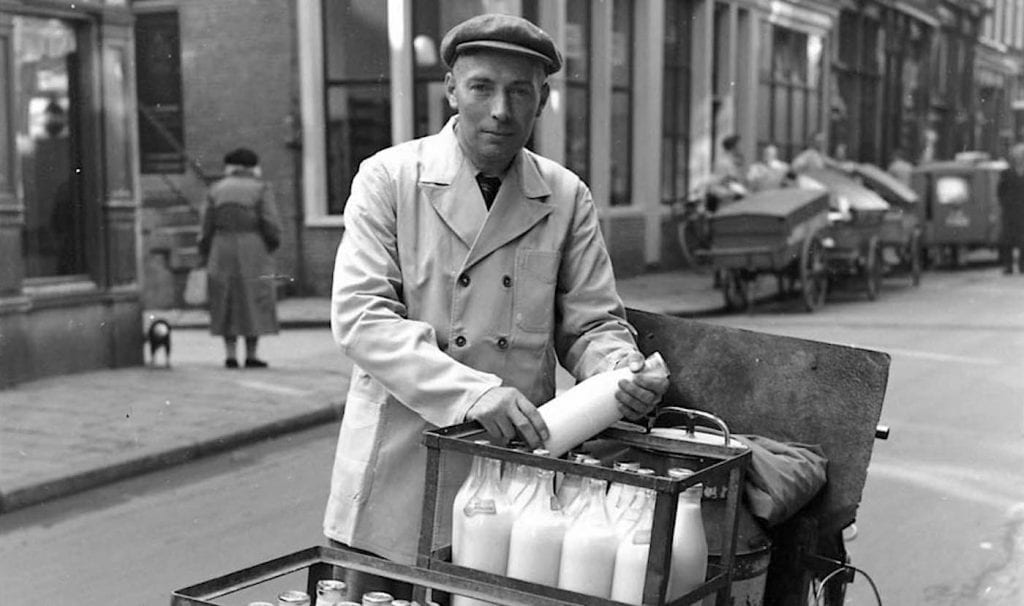
If you were lucky, you could have other home essentials and utensils brought to your doorstep in addition to the milk. With the advance of technology and the birth of refrigerators though, milkmen were sadly phased out of their jobs.
Pinsetters
Bowling has been a beloved sport ever since the earliest civilizations. It’s a simple sport and you don’t even have to be good at it to enjoy it. When the earliest bowling alleys were made, however, they didn’t have all the automatic functions we enjoy today.

Back then, to reset a game, you have to have professional human pinsetters to set up the pins again for you and make sure they’re all aligned. It might seem like an easy job, but these people had to work around the clock setting up pins again and again so that people could play their game.
Chimney Sweep
If you watched Mary Poppins, the old one or the new, how could you forget Mary Poppin’s chimney sweep friend Bert and the Chim Chim Cher-ee song they sang while dancing on the rooftops? It was such an iconic moment!
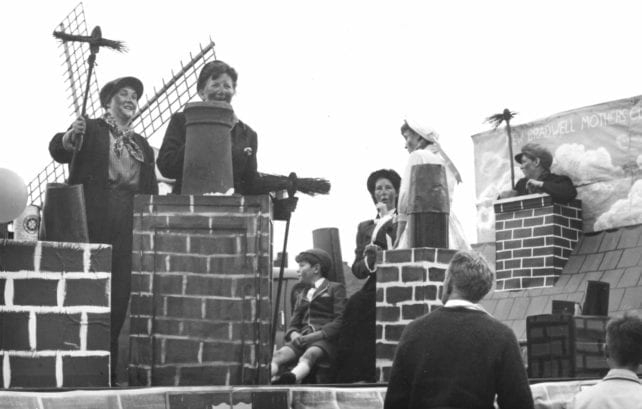
In real life, chimney sweeps were quite a big thing during the Industrial Revolution. They cleaned out and maintained the chimneys of the rich and mighty. As electric stoves and gas appliances were invented, though, fewer and fewer chimneys needed sweeping and cleaning.
Broomsquire
Back in the days, a lot of the most trivial things we take for granted around the house were made by hand by hard-working people. Brooms, for instance, were made mostly by the rural poor called broomsquires in the 1800s by collecting birch twigs.
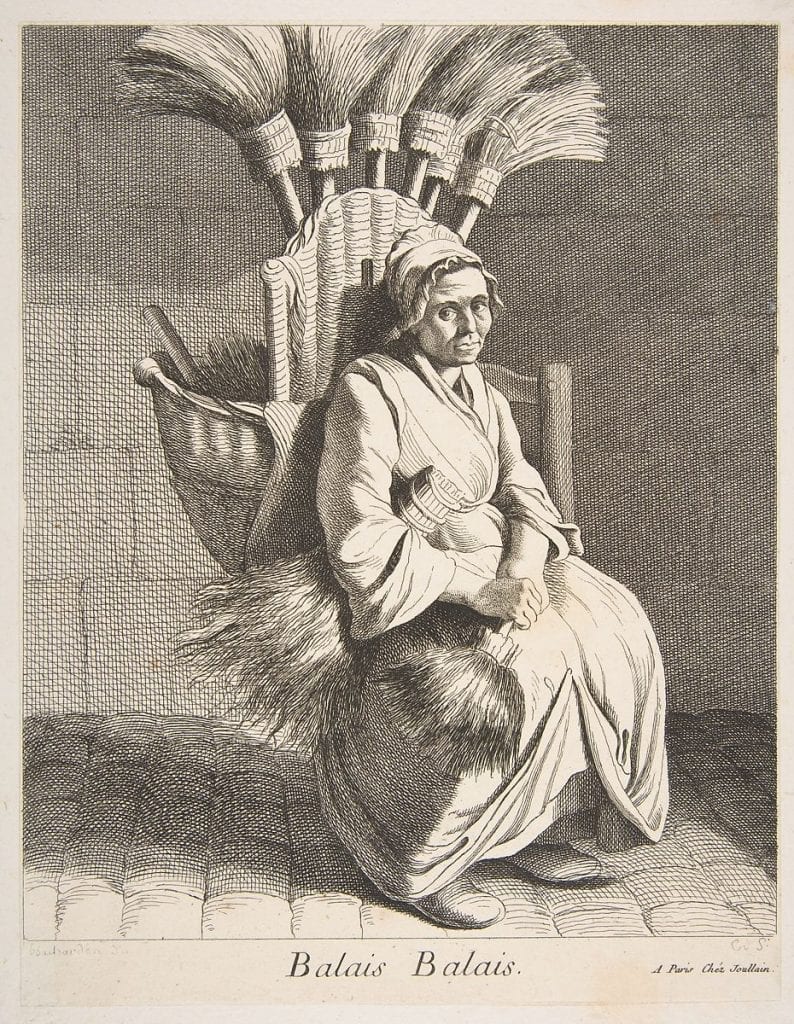
As decent as the profession was, however, people looked down on broom squires and put them in the same class as gypsies, which we think is odd considering they had people whose sole job was to accompany other people to take a dump.
Ice-Men
If you watched Disney’s Frozen, you might probably remember all those men cutting huge chunks of ice from Kristoff’s childhood. Minus the singing, people did actually work jobs like that back in the 1800s, and they were called Ice-Men.
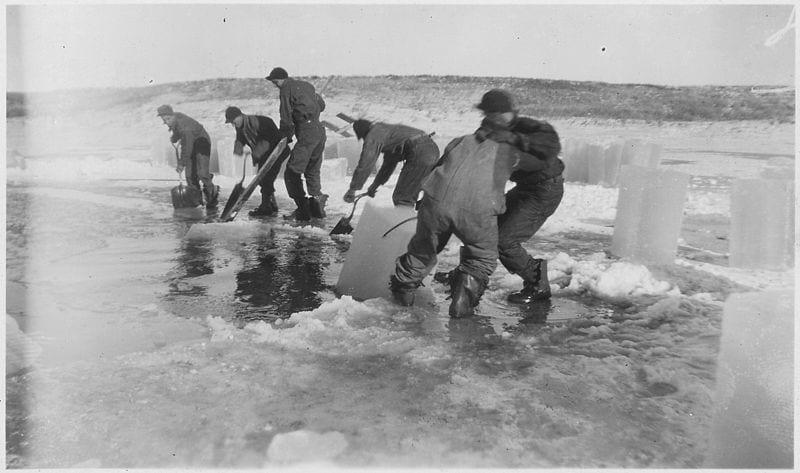
The job wasn’t as jolly as Frozen made it seem to be, though. It was strenuous, and it involved hand-carving huge blocks of ice to transporting them to homes all over the area. And since ice didn’t stay frozen long enough, they’d have to go through this same process every single day.
Elevator Operator
This might be weird for the younger generations today but whenever you rode elevators in the past, say around the 1950s, someone does all the button pressing for you. They were called elevator operators, well-dressed men, and women whose sole job was to operate the elevators.
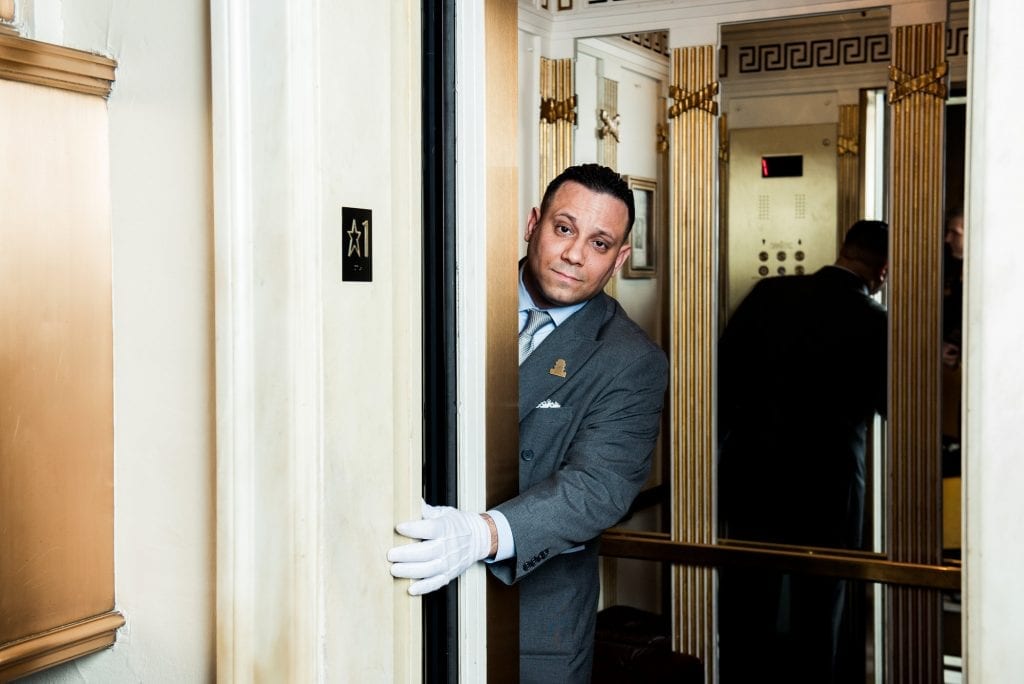
Back then, elevators were a lot more complicated. They weren’t exactly as complicated as airplane consoles, but guests didn’t want to do anything with them nevertheless. Fortunately, elevators started becoming simpler to operate, and people had to start pressing their own buttons.
Linotype Operators
Today, anyone can publish anything online. Whether it’s a stupid meme or a nasty article of fake news, people just need an internet connection to send their message out to the public. In the 1960s, just getting one newspaper out was a huge task.
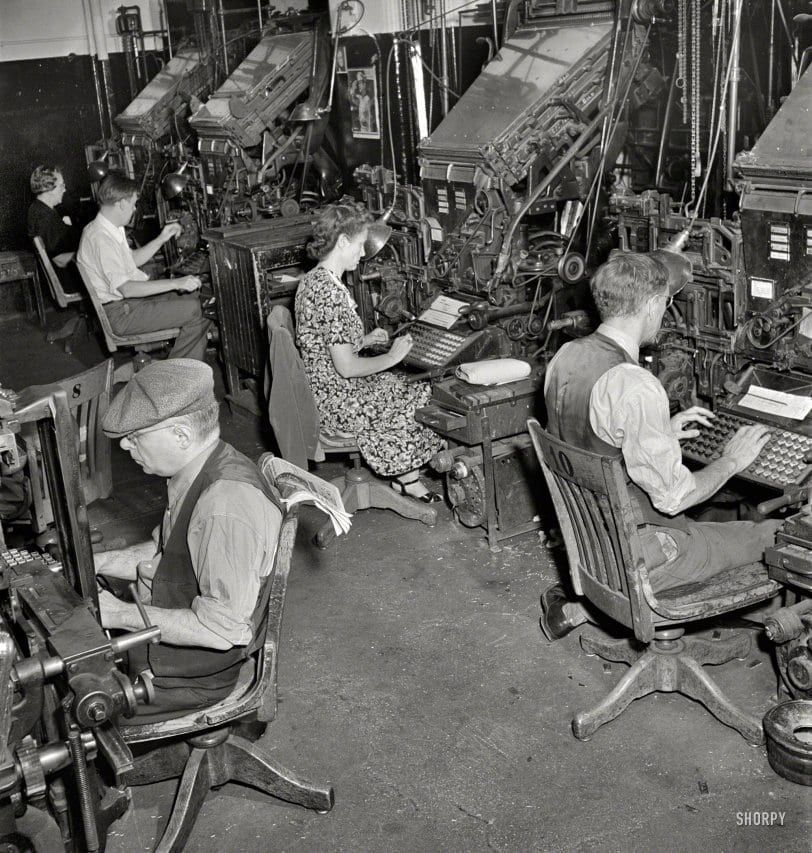
People didn’t have phototypesetting then that allowed the quick mass production of papers. They only had metal typesetters that linotype operators would use to press down articles on newspapers piece by piece. The worst part was that they didn’t exactly have “backspace,” so 1 mistake could be very costly.
Human Calculators
As much as many people hate math, the world does need it, but since not every one of us is a math genius, we need the help of tools to make transactions quicker and more accurate. Imagine a world without calculators, though. There might be a little bit of chaos.
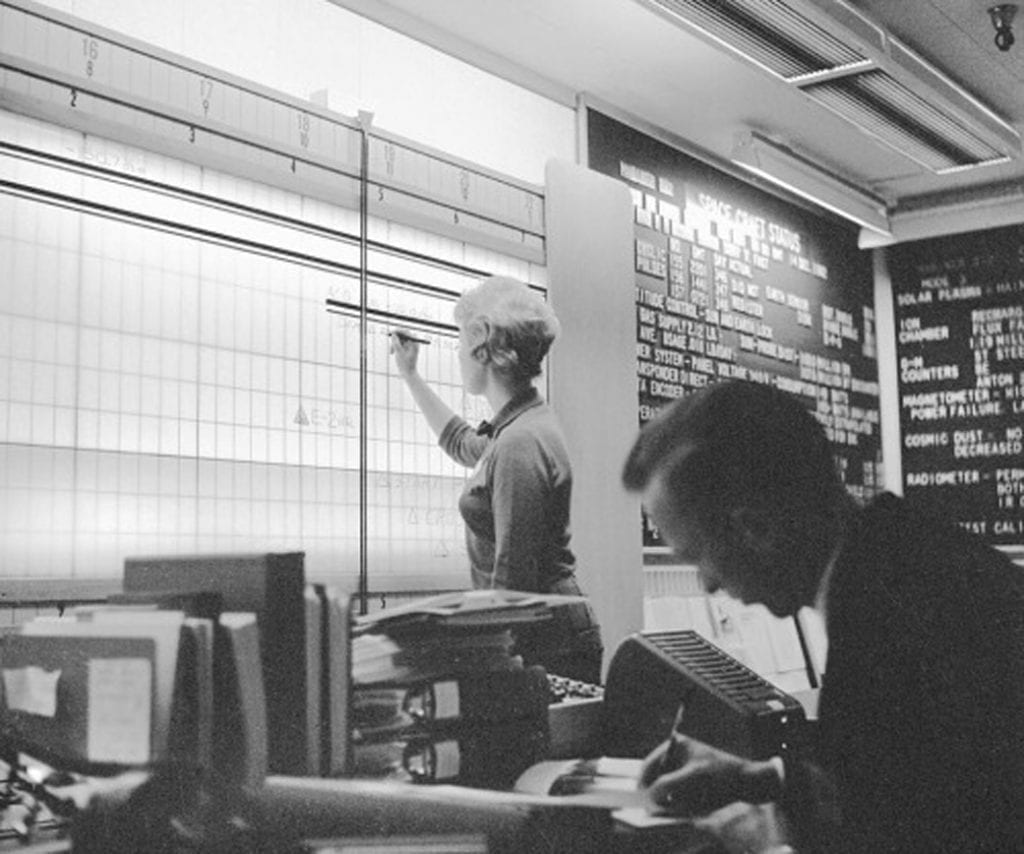
People in days gone by where calculators didn’t exist yet did quite well for themselves, though. Instead of machines, they relied on certain people to act as human computers, manually computing both small and big numbers by hand all day long. We don’t know about you, but this is what we call one of the nightmare jobs.
Phrenologist
Did you know that back in the old days, there were people who determined your mental state and character traits by the shape of your head? They were called phrenologists and were considered masters of science when the practice first came out.
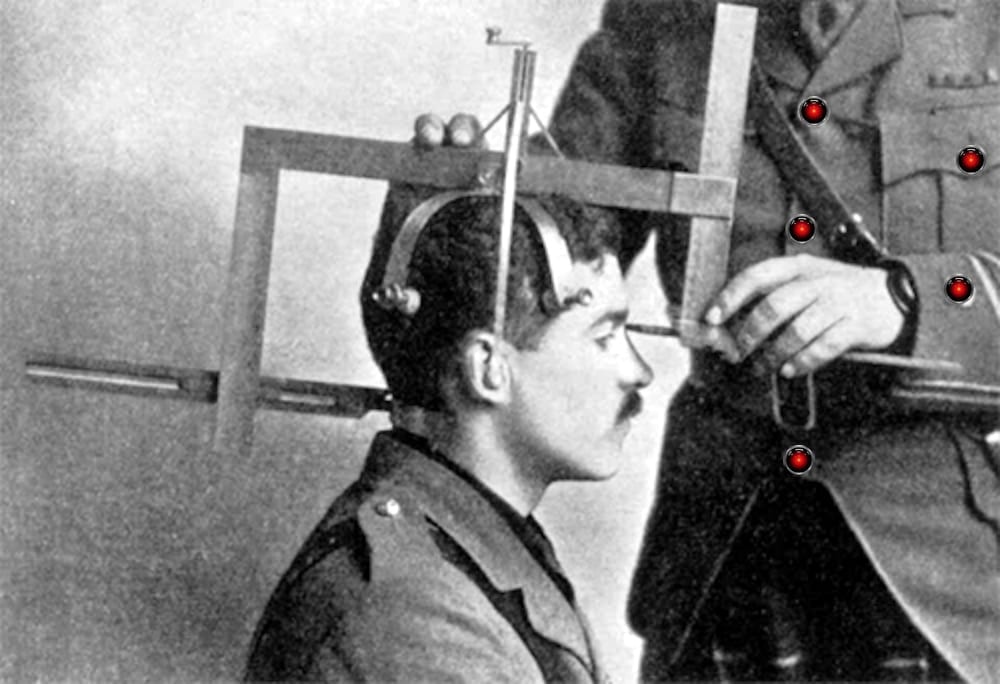
Back then, people loved hearing how well they’ll be able to do in life by their head shape. Sadly, it became another excuse for some people to dictate which races were more superior. Thankfully today, that absurd notion has been long buried and forgotten.
Daguerreotypist
Dagguerreotypists were basically the first photographers in the world. They would pose their subjects, make sure the light is hitting them in the best way, and take pictures with a daguerreotype, the first camera to be invented, and develop it through a chemical process.
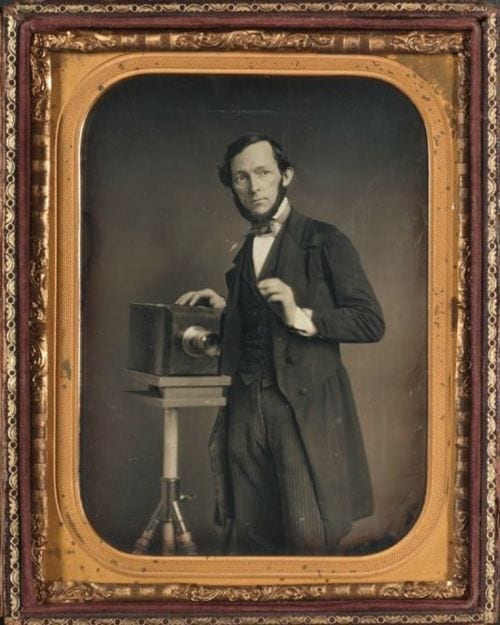
Much like how the public interest in pictures grew rapidly, so did the job, especially after big names of those times like Abraham Lincoln and Frederick Douglass had their portraits taken. If you had someone to advertise your services, you might as well make it one of the most famous men in all of history, right?
Stone Eaters
You may have heard of the odd case of people eating stones in some parts of the world. But while those people ate those stones more out of need, stone eaters of the Georgian and Victorian eras ate stones for entertainment.
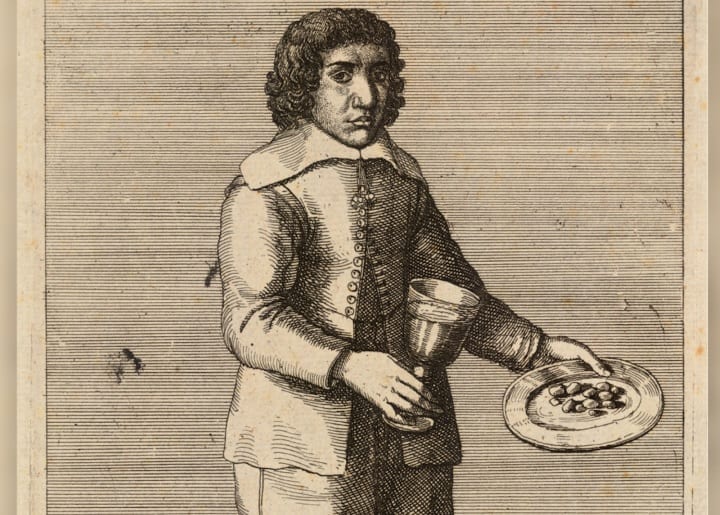
Stone eaters would travel around performing tricks that would end up with them swallowing stones and pebbles for the amusement and pennies of the crowd. People were even encouraged to bring their own stones for the performers to swallow. Soon enough, though, people began to see through the practice and denounced stone eaters as a sham.
Aircraft Listeners
Radar technology has greatly changed the way militaries work. Not only has it helped people detect enemy planes back in wars, but it’s also helping countries today protect their territories and well, up to a point, keep the peace. Before World War II though, it was very different.
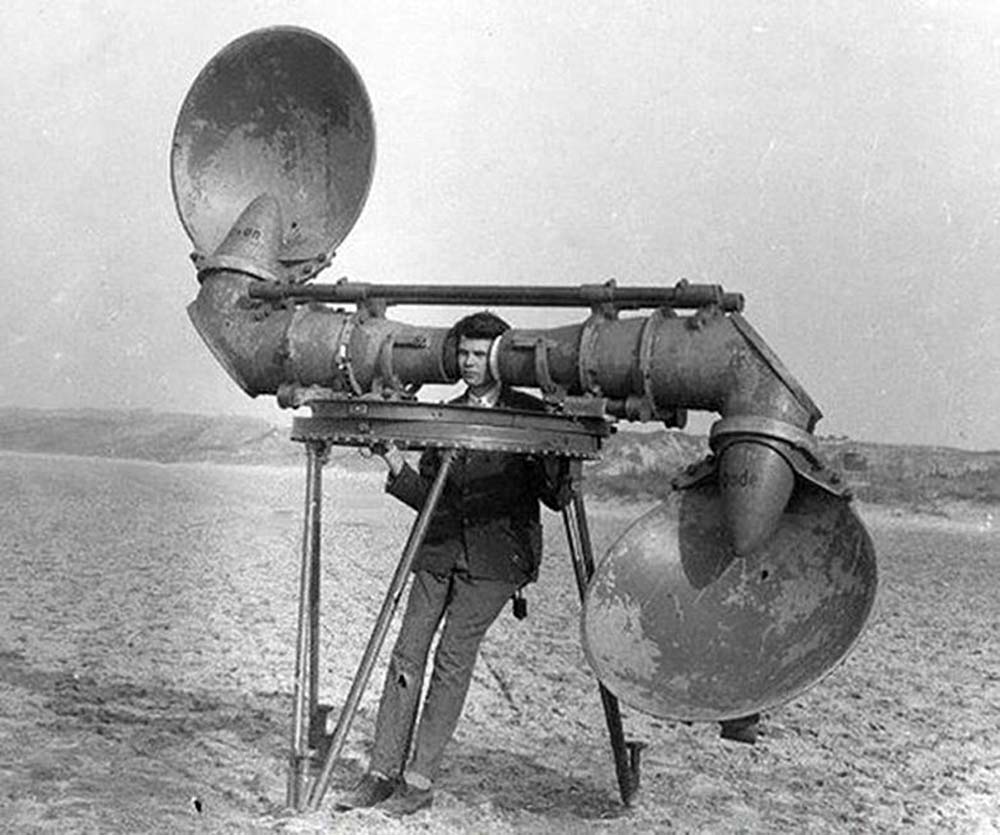
To detect incoming enemy aircraft, militaries employed aircraft listeners. People with this job used acoustic mirrors and listening devices to detect sound. Unfortunately, as effective as they were, they were still a little too late since enemy planes would already be too close to take any preventative measures.
Plague Doctors
Who wouldn’t recognize those terrifying beak masks? When it comes to iconic jobs, plague doctors definitely take one of the top spots. And today, some might even say that we’re set to get our own version of plague doctors.
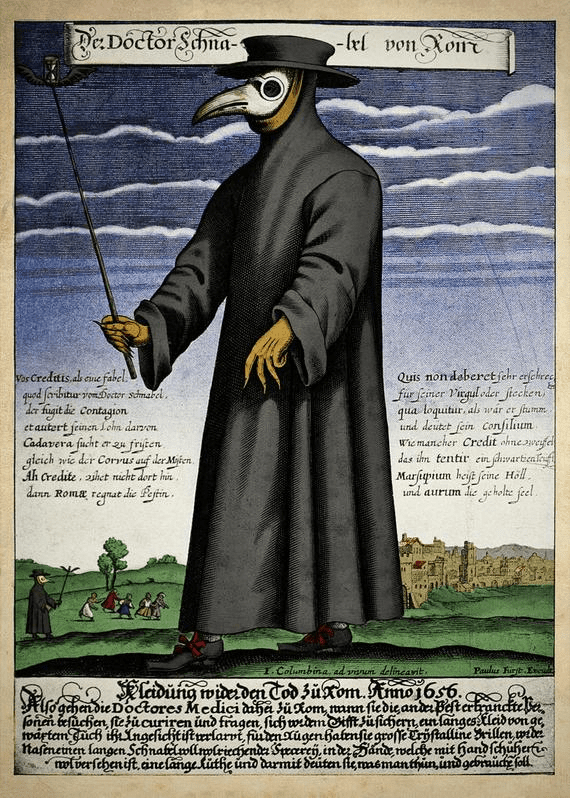
Even if it were the 1600s, these doctors actually got how the disease worked. Although they’re not exactly N95 masks, those beak masks of theirs contained a bunch of different spices that actually helped purify the air they breathed. Plague doctors also carried wands to help them treat patients without actually touching them.
Necessary Women
As the name implies, these workers were women, and yes, they were indeed necessary for all of those who didn’t want their homes stinking of poop back before the colonial times. They were quite high in demand too!
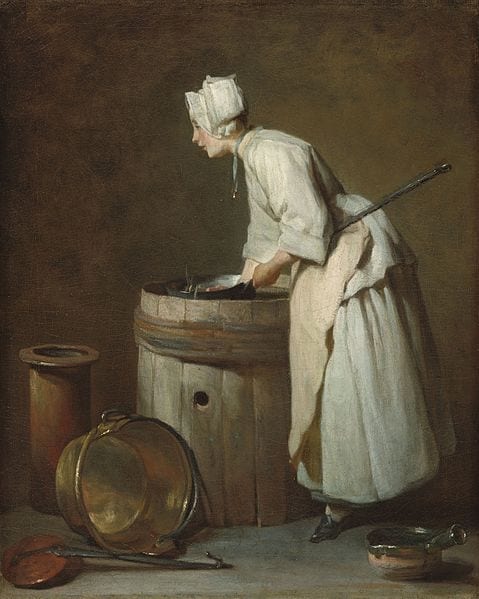
These women were tasked with manually clearing chamber pots. Strangely enough, though, they had to do it all day long, so it was either a lot of people who used one chamber pot or someone who just took too many trips to the pot in a day. Fortunately, when the colonial period came along, so did toilets, and thank heavens, flushing!
Crossing Sweeper
Many people don’t like litter, but some people in the olden days were just over the top about it. Wealthy people, in particular, absolutely hated stepping on all the garbage, mud, and poop lying all over the streets. So what did they do? Hire a crossing sweeper.
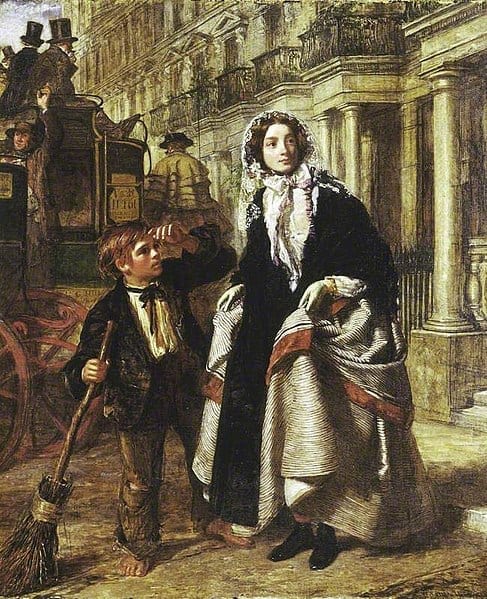
Crossing sweepers would use brooms to clear a path from all the garbage and sewage on the streets for their clients to avoid getting all that dirt on their skirts and shoes. While it does make sense, it’s kind of hilarious to see the lengths the wealthy will go to in those times to keep up all that glamour.
Nomenclator
If you’ve watched The Devil Wears Prada, do you remember that party scene where Miranda had Emily and Andy whisper people’s names into her ear, so Miranda doesn’t look like a complete ass and snob? Well, Roman politicians had people like Andy and Emily, too, called nomenclators.
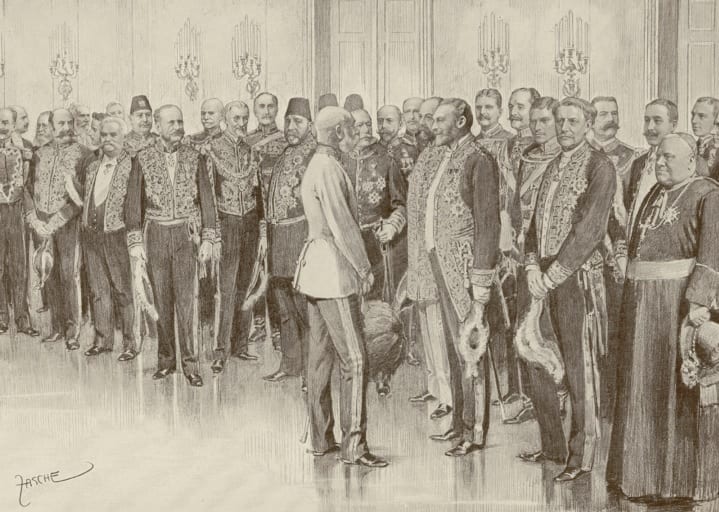
Nomenclators were actually hired to announce guests’ names to their masters, but soon enough, politicians found a way to make them more useful. They would hire them to accompany them to political rallies and whisper names of people in their ears so they would appear to be more personable.
Gandy Dancer
Contrary to the job title, gandy dancers had nothing to do with dancing, although the job was still pretty intense. They were necessary to keep railroads in tiptop shape and keep train transport running smoothly when the railroad industry started operating in the early 1800s.
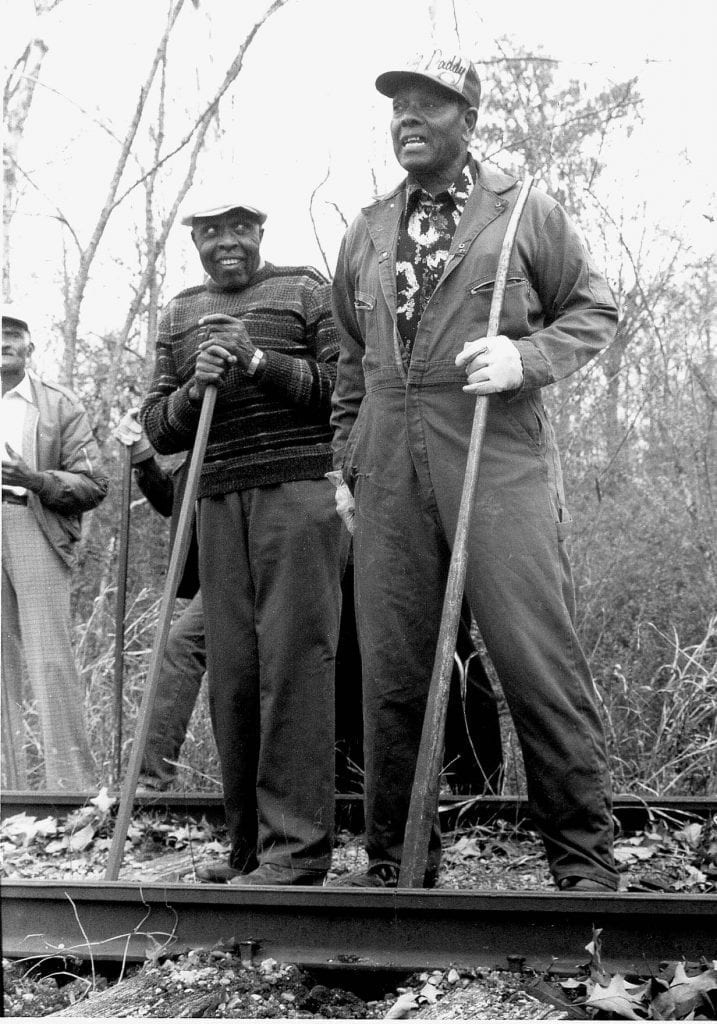
Gandy dancers were often immigrants and former slaves, and they did everything related to railroad tracks like setting ties, replacing rail, hammering spikes, laying, and spreading. Despite how labor-intensive it was, the job still drew tens of thousands of people looking for a decent source of income.
Caddy Butcher
Horses are such majestic creatures, and it’s pretty hard to imagine them being served on a plate, but humanity has gone through some pretty desperate times. Particularly in the 1940s, horse meat became a thing in the US.
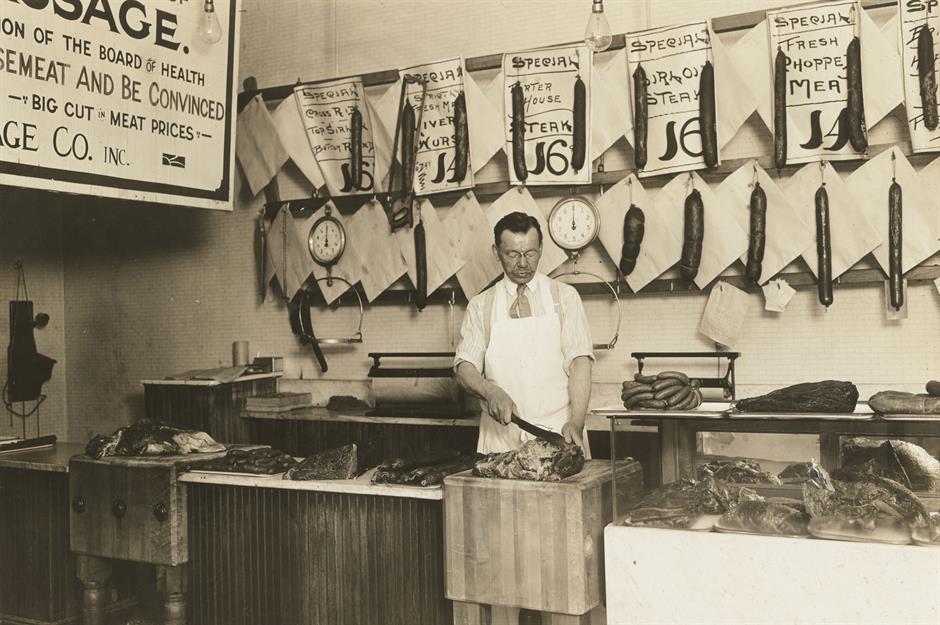
Back then, horse meat was cheap and considered a good alternative to beef and venison, and it was a caddy butcher’s job to prepare and sell the horse meat. Since then, though, eating horse meat has become taboo and thankfully not a common practise.
Baked Potato Seller
If you wanted baked potatoes today, you had to buy raw potatoes in the market and go through the trouble of prepping them and waiting for almost an hour for them to cook in the oven. Back in the mid-1800s, though, you could just go on the street and find a baked potato seller.
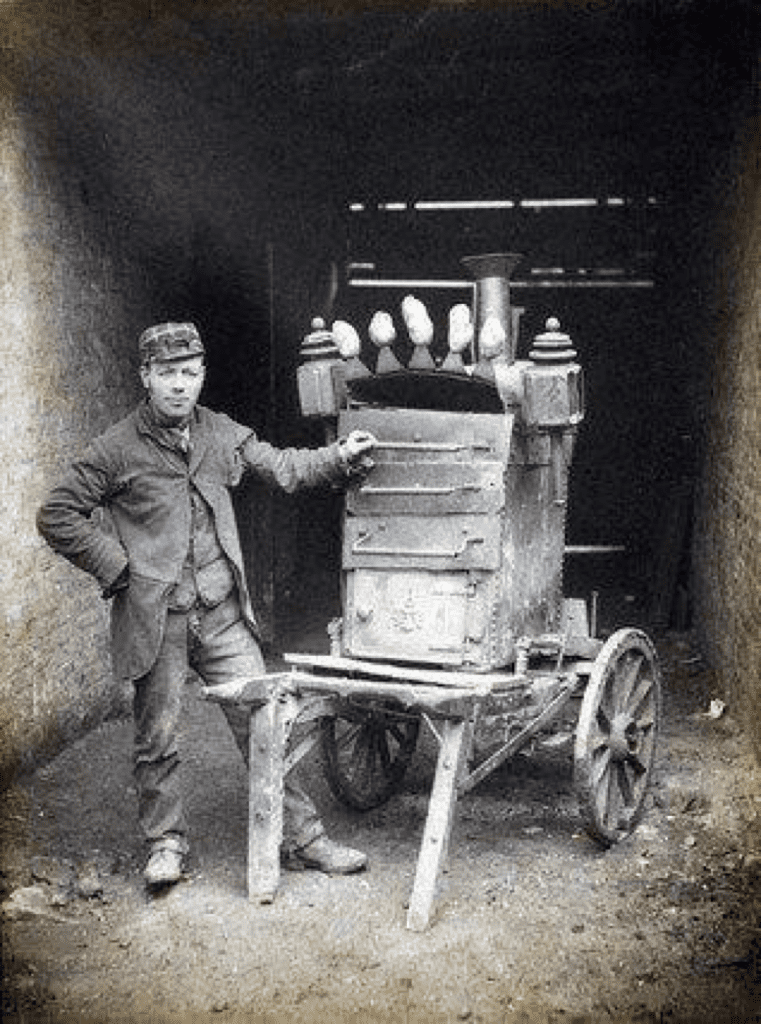
While most people bought the potatoes to eat, many people also purchased them to keep their hands warm in the cold winter months. Once summer came along, these baked potato sellers would switch out their potatoes for strawberries or raspberries.
Barber Surgeon
Today, you’ll still find these two jobs but never together or done by the same person. After all, we don’t want barbers doing our operations or surgeons cutting our hair for the same reason: we don’t want to get hurt. It’s simply best we leave them to separate fields.
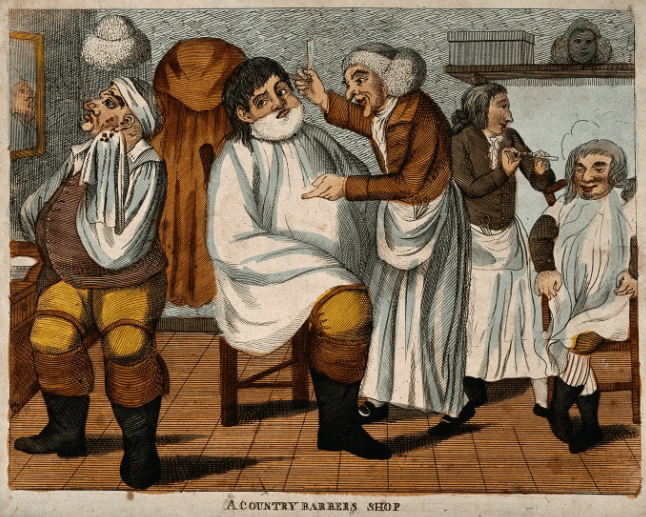
Back in the Middle Ages, though, these two professions were one and the same. They did both deal with sharp and dangerous blades. Barber surgeons were often deployed to battlefields, and if they weren’t cutting soldiers’ hair, you’d see them amputating limbs. Thank heavens for modernization!
